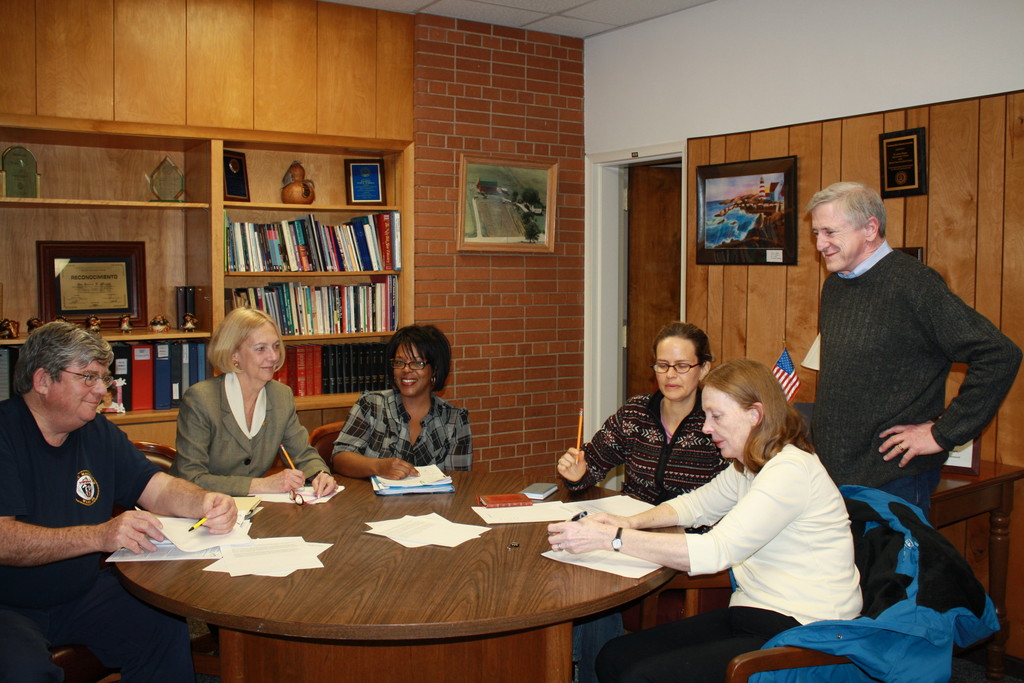Big news for little people
11th-hour accord likely to save kindergarten
When the Baldwin Board of Education postponed a budget ratification vote on Feb. 15, Superintendent James Mapes requested the delay to “allow a number of situations to clarify.” One of those clarifications materialized last week, and the resulting compromise will likely mean the salvation of Baldwin’s full-day kindergarten program.
In a gesture that put students’ needs ahead of their own, Baldwin teachers agreed to a pay freeze for the current school year — the first successful negotiation between teachers and the district since the economic downturn began in 2008. It would be shortsighted to call this good news, but local parents will certainly welcome it. Faced with a budget deficit of more than $4 million, the Baldwin School District had all but decided to slash kindergarten services in half until late last week.
A statement from the board detailed the agreement on March 7: “Thanks to the shared sacrifice and cooperation of Baldwin teachers, the Baldwin Board of Education and the Baldwin Teachers Association have ratified a new collective bargaining agreement for the 2011-12 and 2012-13 school years. Due to the challenging fiscal climate, the teachers have agreed to a freeze on their salary this school year although, as provided by law, steps will continue in place as well as salary increases earned for taking approved courses during the current year. For 2012-13, however, the freeze will be complete. This means that there will be neither salary or step increases nor any additional compensation for course credits. In addition, all other monetary items such as stipends and extra-curricular and coaching payments will be frozen during the year.”
The agreement between the teachers association and the board was unanimously accepted at an abbreviated executive session of the board at the district office last week.
The Herald spoke with Mapes about the ramifications of the accord the day after the vote. “I think the teachers understood the difficulty the district is having,” he said, sitting at the table where the agreement was approved. “We were looking at laying off 25 teachers. Now we’ll be able to save eight positions, and I will recommend to the board that we use the savings from the freeze to restore the full-day kindergarten program. I believe the teachers wanted to give back to the community with this one, and that’s very much to their credit.”
The Herald also spoke to Mary Fallica, president of the teacher’s association, who discussed her constituents’ motivations for approving the freeze. “Our negotiating team approached Dr. Mapes a couple weeks ago, when we knew full-day kindergarten was being threatened,” Fallica said. “We asked if it would be possible to enter into an understanding where, if the membership voted for a freeze, the money saved would make it possible to restore full-day kindergarten.”
She explained that while the board felt that too many variables might affect funding to make restoration of kindergarten a contractual mandate — a public rejection of the school budget, for example — trustees made “a very solemn promise” to direct any possible savings to restoring the program. “In restoring full-day kindergarten, we knew that eight or more positions could be restored,” Fallica said. “We also felt, as educators, that the benefits derived from the children’s attending kindergarten would reverberate through their entire careers. We believe in those benefits, and our membership was willing to share the sacrifice. The vote passed with nearly a 75 percent margin.”
The next step in restoring the kindergarten program was for Mapes to make a public recommendation to the school board at the Board of Education meeting on March 14, after the Herald went to press. He expressed confidence prior to the meeting that his suggestion would be accepted.

 54.0°,
Mostly Cloudy
54.0°,
Mostly Cloudy 




